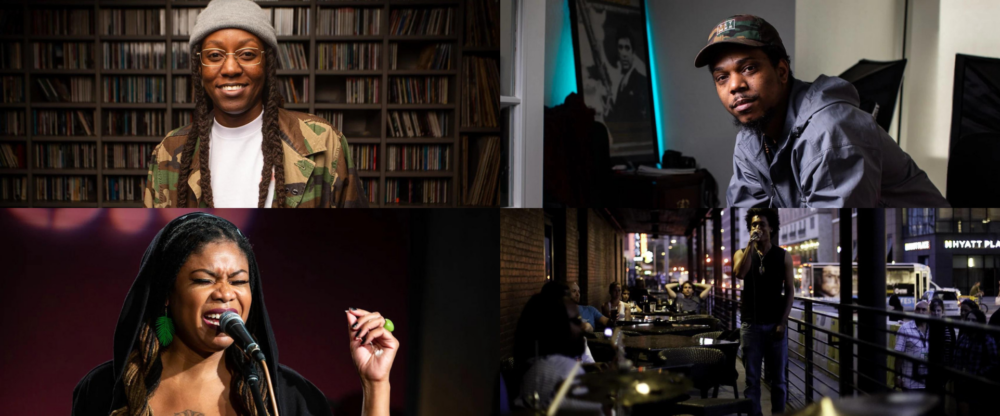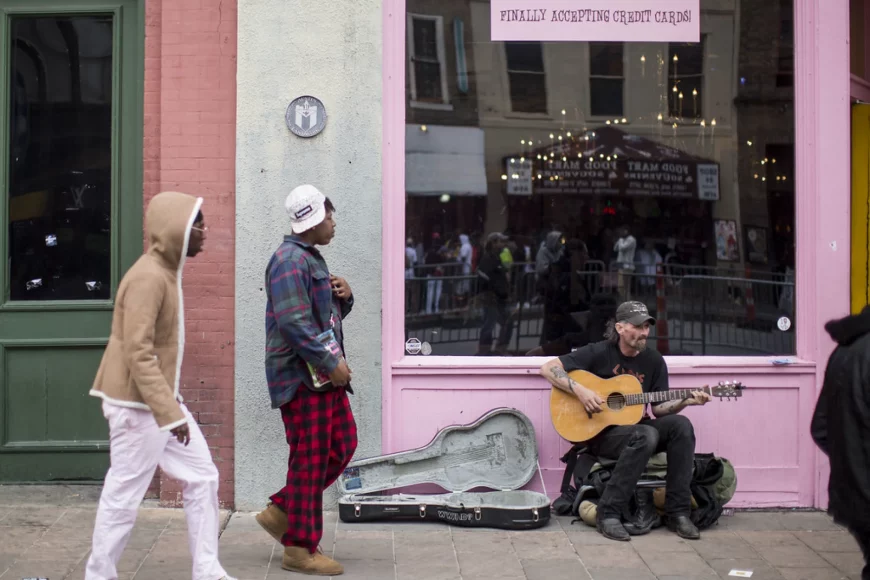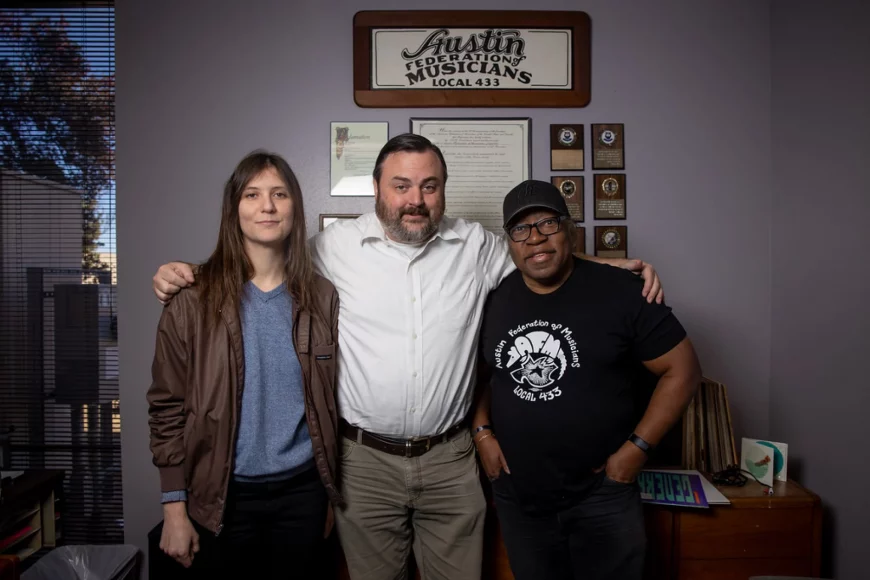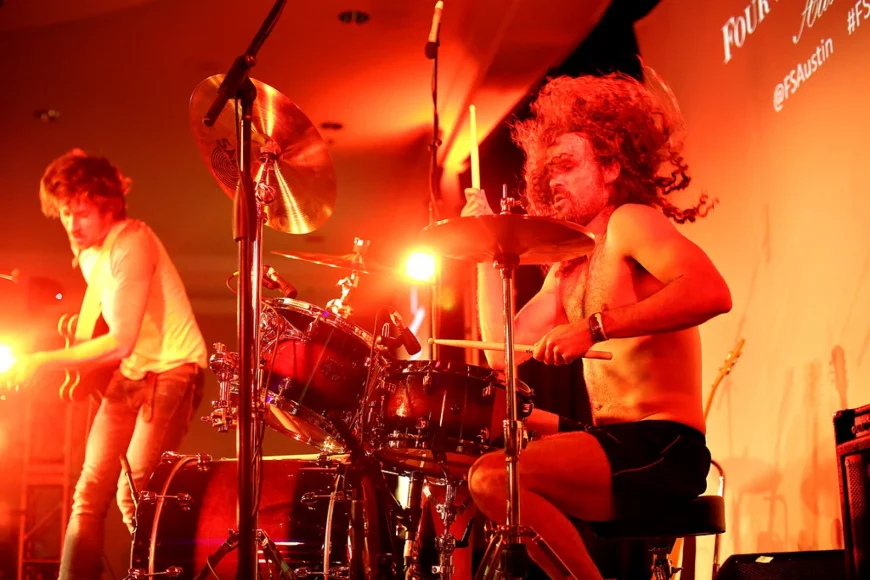KUT 90.5 | By Miles Bloxson , Elizabeth McQueen
Published March 8, 2023 at 5:01 AM CST
The Greater Austin Music Census measured a number of things about Austin’s music scene, including attitudes and perceptions around issues like sexism, homophobia, racism and elitism. The findings suggest many people – especially those who have faced discrimination – perceive a fair amount of bias here.
Pause/Play hosts Miles Bloxson and Elizabeth McQueen asked four creatives from Austin’s Black community – which has historically faced a lot of challenges – about how they navigate the music scene here.
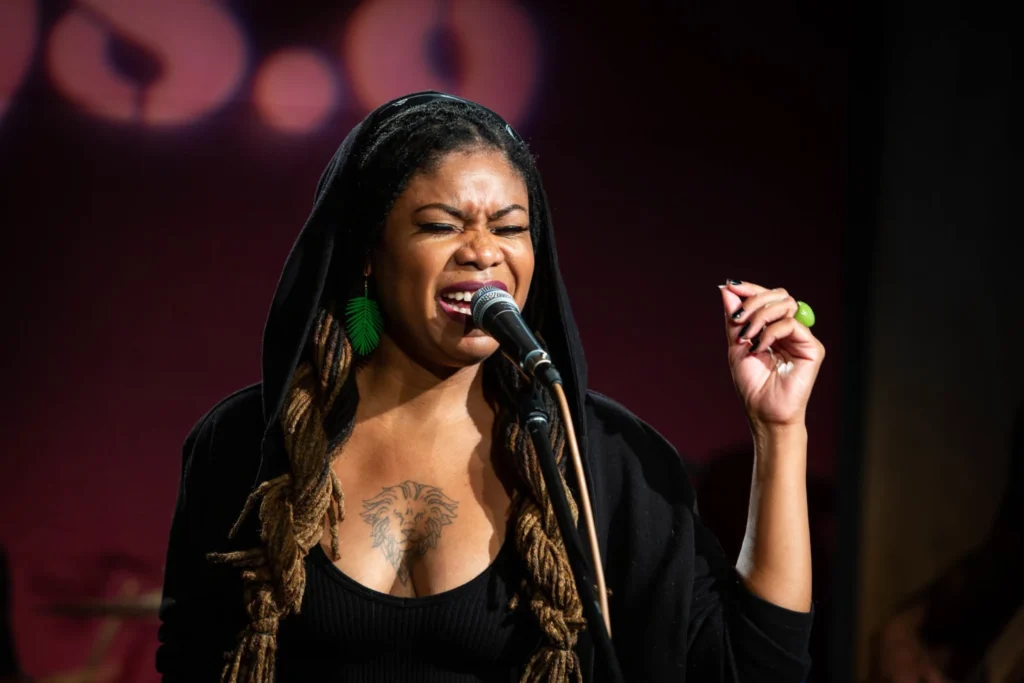
Anastasia Hera
Rapper, singer and songwriter Anastasia Hera is a full-time mom with a full-time job. The Austin native has been performing professionally for 11 years as an hip-hop artist. She is also an entrepreneur with her own rum called HERA Tropical Rum.
On what challenges she faced:
“The genre. You know, first of all, there are all these conceptions and ideas that people have about what a rapper is and looks like and what they have to say. And then coming in as a woman, coming in as an adult woman about 10 years older on average than everybody else that I was around, you know, there was a lot of that to overcome. And I think at that time, still, there was some stigma from the venues. ‘Oh, we don’t do rap here.’”
On what support she’d like to see in Austin:
“When I hear Austin is the live music capital of the world, I hear some blues rock. You know, it’s there. I want the urban music. I want to hear some hip-hop in that mix. I want to hear some R&B in that mix. And, you know, whatever we’re doing – world beats, Afrobeats, all of it – it all contributes to what’s happening here in Austin. There is no other place to be a creative in the world, like being a creative here. And yeah, I would like our voices amplified in that mix.”
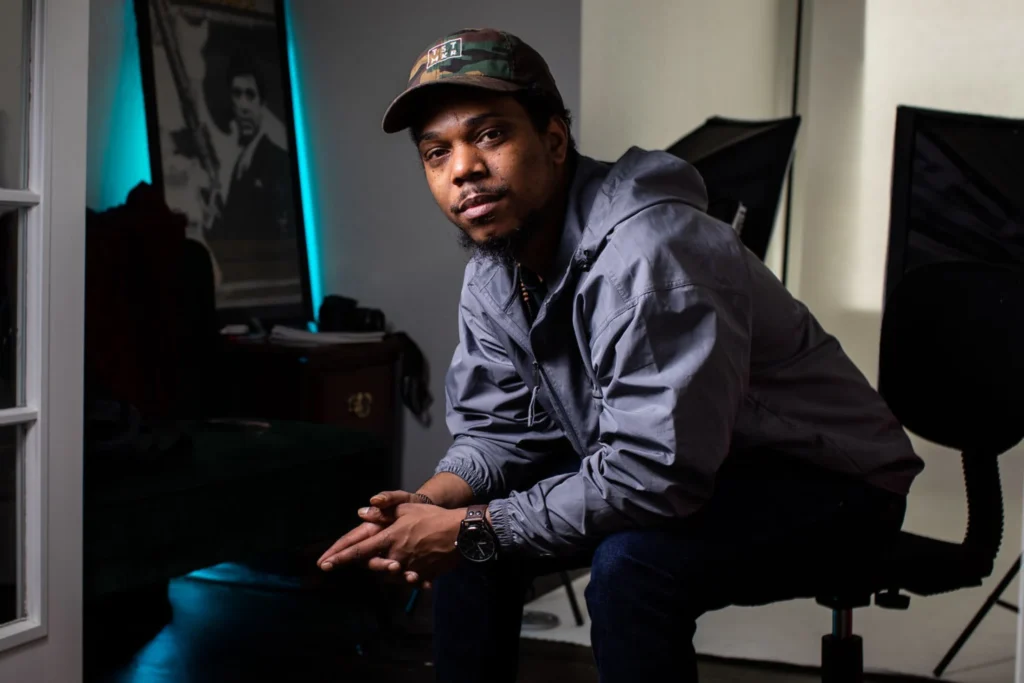
Cam “The Tastemaker” Turney
Cam Turney moved here as a child and has been working in the Austin music scene since high school. When he was 16, he started hosting parties and curating shows at the historical Eastside venue Victory Grill. Now he’s the in-arena host for the Austin Spurs and R&B Only Live, a touring R&B show. He is also a celebrity talent booker for the company Tour Mogul.
On the challenges Black artists have faced in Austin:
“It’s changed now, but back then I remember even in those days it was just getting to the other side of I-35. That was just the hardest thing to do. Like we couldn’t get into the real concert, we couldn’t get into the Empires and the Mohawks. None of that was happening, so the Victory Grill was like a savior for us.”
“Specifically for Black artists, it’s just the stigma that comes with the art we indulge in. When you tell someone, ‘Hey, I’m a rapper.” I don’t know many rappers who are OK at a corporate job telling everybody at their job that they’re a rapper. I think that that works against them.”
On the type of support he wants to see for Black artists:
“Education first, then financing. I don’t care how much money you give anybody if they don’t know what to do with it. … I have been in the situation where I’ve put out the money to try to help artists. And I’ve been in a situation where I’m the person that’s getting the money to help the artists. And so I had to create services that would protect them, because they’re not necessarily educated on what they need protection from.”
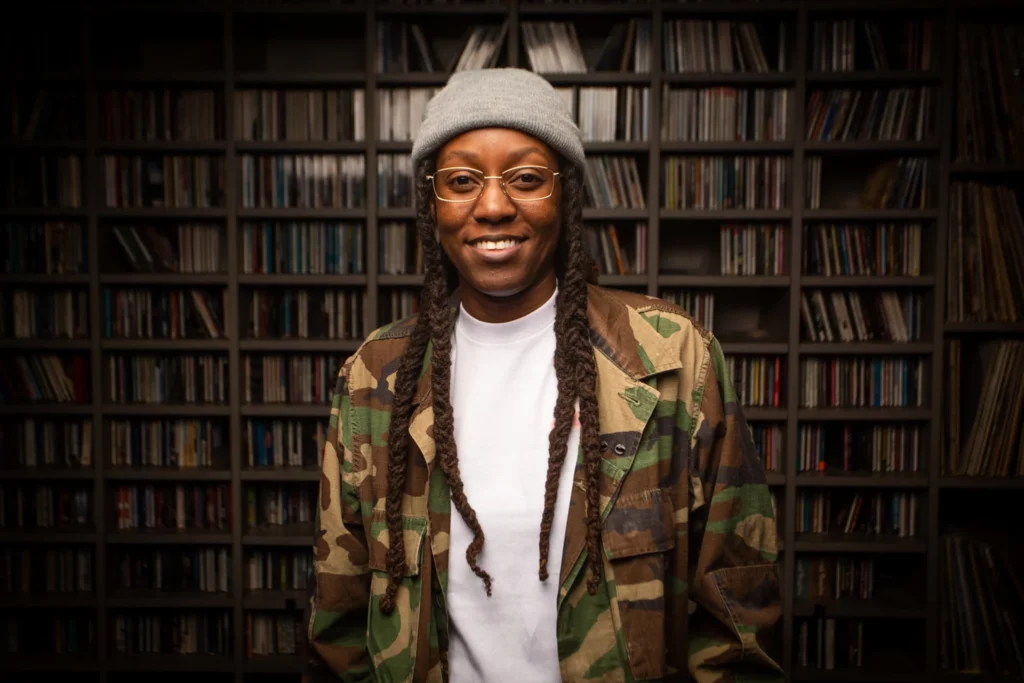
BLakchyl
Austin hip-hop artist, writer and actress Te’aunna Moore, better known as BLakchyl, has lived in Austin her entire life. She got into rap in high school through the Austin nonprofit the Cypher, which connected kids with local musicians and artists who encouraged them to write and perform. Her first show was at Huston-Tillotson University when she was 15.
On the biggest challenges she faces:
“Definitely being queer. I’ve had to experience where I was supporting this rapper. He was having a Halloween party, and I remember the dress code. You had to have a costume. Women get in free and men was like $5 or $10. And when I got to the door, they were like, ‘You have to pay. You wanna look like a man. You gonna be treated like a man.’ … That definitely discouraged me.”
Queer artists are thriving, but there’s not really no studs. Like the femmes would do songs with gay boys, but not with studs. So I feel like there’s a disconnect, too, with like queer femmes as well. Like a disconnect with studs and femmes, as well when it comes to making music.
On what she hopes for the future for the hip-hop scene, the queer scene and Black Austin artists:
“I hope to see something like a Cypher in the future. I feel like if young people had some type of guidance like that, seeing other men and girls that look like them, who are really genre-bending and helping their community and making opportunities for themselves to leave and see the world. Because that’s what I got to do. I still want to do that.”
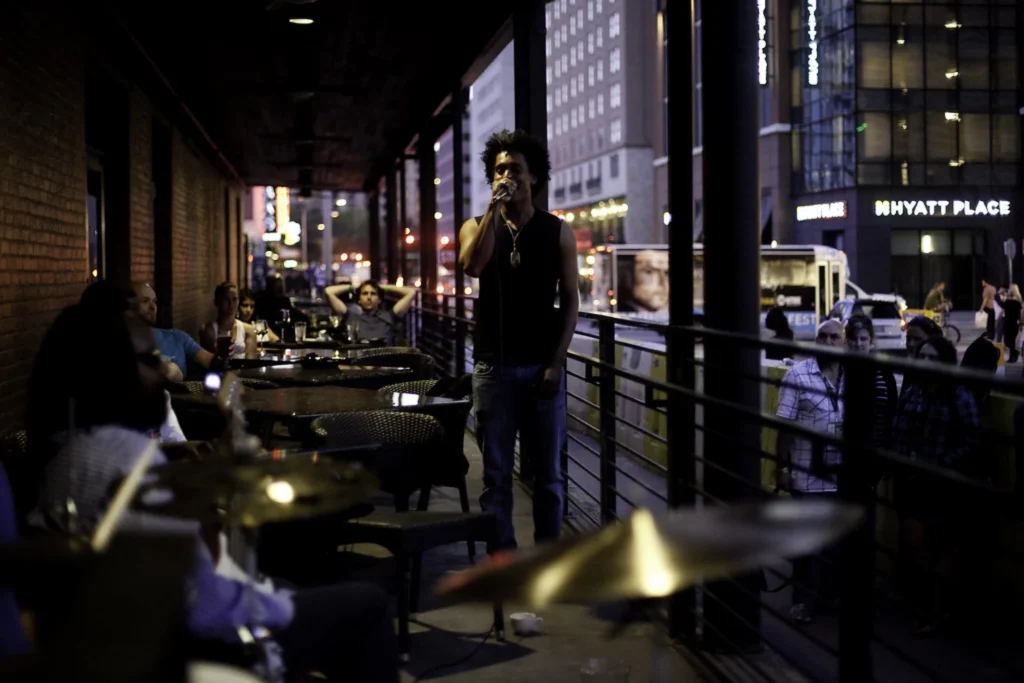
Brannen Temple
Brannen Temple is a drummer and native Austinite. He grew up on the Eastside and has been playing professional gigs since the ’80s. He runs his own projects, like Temple Underground, and has played with artists like Eric Burdon, Ruthie Foster and Gary Clark Jr.
On what kind of support he’d like to see for Black Austin musicians:
“We’re at a time where everyone is capable of great things. Non-gender biases and just sort of erase these racial biases. Most people now are at least aware that most of the world is waking up and I think just more self-awareness of those who are in positions of influence, you know, if it’s a club owner or if it’s a promoter. That’s something that takes a little longer than one conversation. That takes many conversations and then it also takes the musicians to continue their study and to not necessarily rest on how many likes or follows they have. And also be a little less self-absorbed and recognize that many people are working for the same orsimilar goals and we all should be working together”
On what he hopes for the future for Black artists:
“First and foremost, just as an artist, just to keep working on your craft and don’t expect things to come to you just because you’re Black. … But also, you know, just a continued understanding of what ancestors had to go through in this town. And if you don’t know, ask somebody. Recognizing that history is important. … Opening themselves up to all people, because nobody is going to do any of this stuff alone. Black folks are not going to all the sudden be in the lap of luxury with millions. That’s just not what the industry is, it’s not run by Black people. … But those that are running those industries are also going to have to recognize their faults and be more willing to listen and to be more willing to let go of some of the reins and some of the control.”
“Do I have any specific words? You know, stay Black.”
